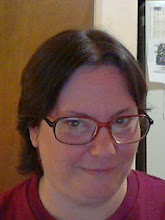I've just finished reading "Restless Souls: The Making of American Spirituality" by Leigh Eric Schmidt, and I thought it would be relevant for unenrolled Baha'is to know that independent spirituality is not just some fly-by-night thing that the Baby Boomers invented, but has a long history of its own, dating back to the 1830s. And, Baha'is are very much a part of that history.
An entire chapter is devoted to telling the story of Sarah Farmer and Green Acre. She started it in 1894, right after the Parliament of World Religions, and it was an important meeting place for almost every unorthodox form of spirituality around at the time: Transcendentalists, Vedantists, Theosophists, Christian Scientists, New Thought, and the like. She wanted it to be dedicated to the ideal of peace between religions -- I noted on the Green Acre website that the green-letttered Peace Flag that Sarah flew over the original Greenacre still flies there. But there were tensions, and these tensions became even worse when Sarah herself became a Baha'i, and this chapter dwells on the problem of what happens when an independent seeker actually finds something. Poor Sarah got pressures from Baha'is (including 'Abdu'l-Baha') to make Green Acre a center for teaching the Baha'i Faith, her old associates thought she had betrayed the cause of religious liberalism by submitting herself to "the Persian Revelation". The strain of trying to juggle these competing interests took a great toll on her physical and mental health. But its an interesting read -- one of her best friends, Sara Bull, was among the first practitioners of yoga in this country. (I was pleasantly surprised to see that Green Acre's current schedule includes a yoga class.) Green Acre was not only an important landmark for Baha'is, but in the history of alternative religion in America.
Moving further into the book, I was caught by Thomas Kelly's approach, since it seemed similar to my own;
Kelly, in effect, shifted away from the Trancendentalist emphasis on ephemeral moments of spiritual awareness --"the flickering of our psychic states" -- to sustained "inward practices of the mind." Not transient states of mystic consciousness, but continuous habits of daily devotion -- these were Kelly's chief pursuit: "Practice comes first in religion".
This is, at least one answer, to those who criticize unaffiliated spirituality as essentially a lot of romantic slosh with no real substance.
The book, in its last chapter, actually goes into some of those criticisms, particularly by conservative Christians. One thing that Schmidt points out is that there are some -- gays stand out particularly as one such group -- that don't fit very well into organized religion. I would also include those of a less social temperament. Certainly, introverts have a tough time in the Baha'i community -- and they probably do in other communities as well. The orthodox want these folks to either change themselves in order to fit into a community or to just forget about God. Well, too bad, because that doesn't happen -- Americans have been charting their own spiritual path for many generations now, and they will continue to do so. It's as old an American tradition as the revival meeting.
Thursday, August 7, 2008
Subscribe to:
Comments (Atom)
